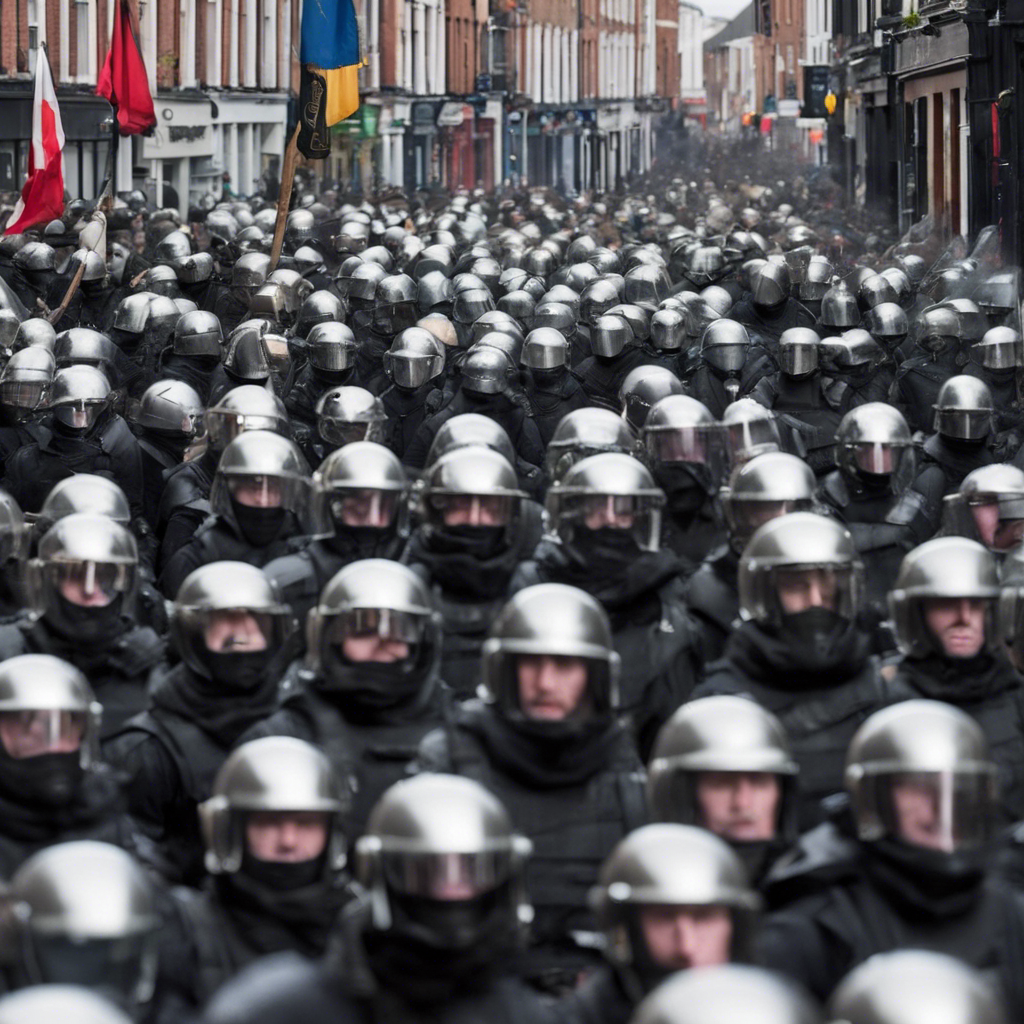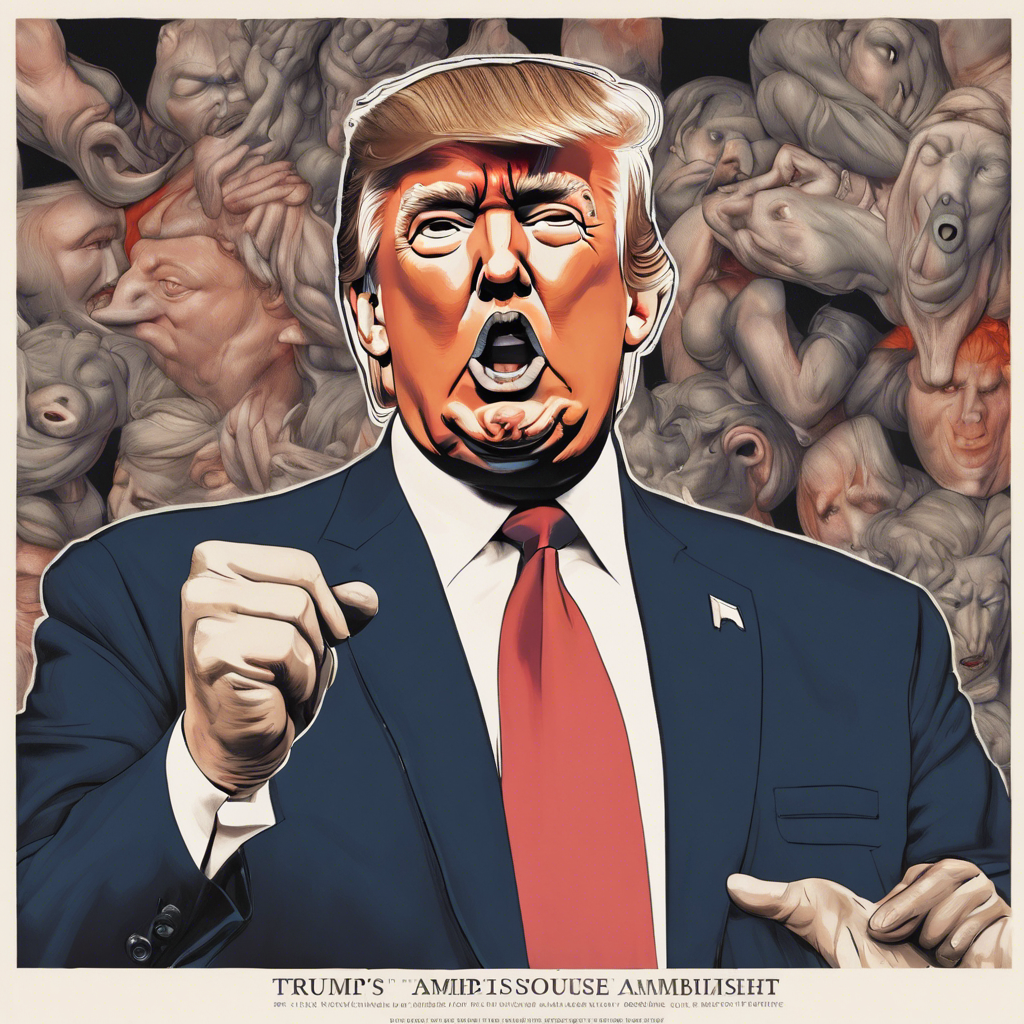Dublin’s Riots: A Disturbing Reflection of Rising Far-Right Ideology in Europe

Unprecedented Violence Shocks Dublin as Far-Right Groups Incite Chaos
Dublin, the capital city of Ireland, was engulfed in unprecedented violence and rioting on Thursday night, leaving the country reeling from the shock. The rioters set fire to numerous city buses and police vehicles, while also causing extensive damage to storefronts across the city. The chaos was sparked by a knife attack earlier in the day, which resulted in several injuries. Irish officials have pointed to a “lunatic hooligan faction driven by far-right ideology” as the perpetrators of the destruction. This incident highlights the growing influence of far-right groups in European politics and raises concerns about the potential consequences.
Scenes of Unbelievable Violence and Destruction
The scenes that unfolded in Dublin on Thursday night were nothing short of shocking for the city’s residents. Fires raged on multiple vehicles, including a city tram, while firefighters faced attacks from large crowds of rioters. The scale and intensity of the violence caught many off guard, as it spread throughout the city center, affecting numerous streets and buildings. The estimated cost of the damage is expected to reach tens of millions of dollars. Law enforcement authorities have made 32 arrests so far, with the possibility of more to come. In response to the escalating situation, a heavy police presence has been deployed, particularly around government buildings. The police chief has also stated that a more robust approach will be taken if further violence ensues, including the use of water cannons borrowed from Northern Ireland.
The Role of Far-Right Groups in the Violence
Senior officials have attributed the violence in Dublin to far-right groups, labeling them an emerging threat to the country. The incident appears to have been coordinated through encrypted messaging apps, with members of these groups mobilizing a protest at the location of the initial knife attack. At its peak, the rioting involved approximately 500 individuals. The motives behind the violence seem to be rooted in anti-immigration sentiments and a broader opposition to Ireland’s inclusive and tolerant society.
Political Response and Calls for Action
In the wake of the riots, political leaders in Ireland have expressed their condemnation of the violence and emphasized the need to protect the country’s democracy and inclusive values. Prime Minister Leo Varadkar has called for updated powers to address online activity that incites violence. He has also stressed that the actions of the rioters bring shame not only upon themselves but also upon Ireland as a whole. While some opposition parties, such as Sinn Fein, have demanded the resignation of the police chief and the justice minister, the majority of political leaders have called for unity and urged against the division that could further exacerbate the situation.
The Broader European Trend of Far-Right Influence
The events in Dublin shed light on the growing influence of far-right groups across Europe. While Ireland has not seen the emergence of far-right populist parties with anti-immigration platforms, neighboring countries have witnessed the rise of such parties in recent years. Germany, France, Italy, and Spain have all experienced the presence of far-right parties in their parliaments, reflecting the complex political landscape influenced by the issue of international migration. Notably, the Netherlands recently saw a far-right anti-immigrant party become the most successful in its parliamentary elections, potentially leading to their involvement in forming a new government. It is crucial to recognize the broader implications of these trends and the impact they may have on European politics as a whole.
Conclusion:
The riots in Dublin serve as a stark reminder of the growing influence of far-right ideology in Europe. While Ireland may not have experienced the same level of far-right political parties as its neighbors, the incident highlights the potential for violence and unrest when extremist groups exploit societal divisions. The response from political leaders emphasizes the need to protect democratic values and maintain unity in the face of such challenges. As Europe grapples with the complexities of migration and integration, it is essential to confront the rising far-right sentiment and work towards fostering inclusive societies that reject hatred and division.










